Sibling Rivalry: 2024 Toyota Land Cruiser vs. Lexus GX
Toyota and Lexus offer SUV shoppers two different takes on the same truck.
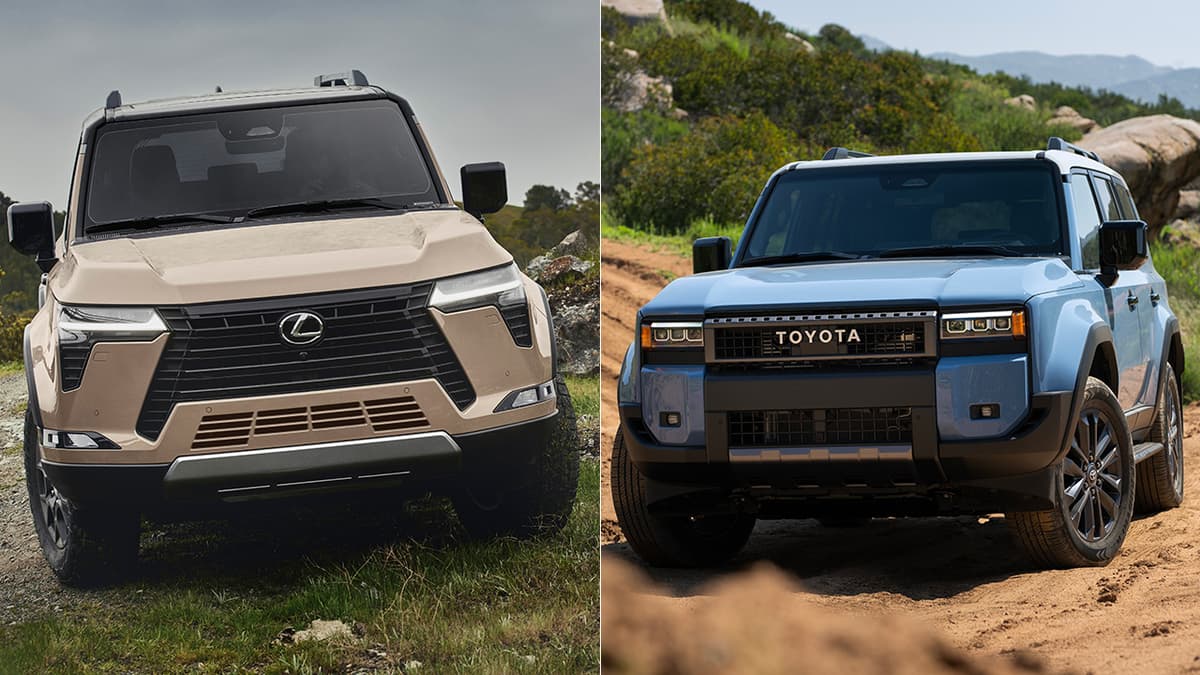
They were among the oldest trucks on sale, but now they’re two of the youngest. Toyota and its luxury brand Lexus have simultaneously replaced the long-running Land Cruiser and GX SUVs.
The last generation of the Land Cruiser, discontinued in 2021, dated back to 2008, while the persistently popular GX had been a stalwart of the Lexus lineup since 2010.
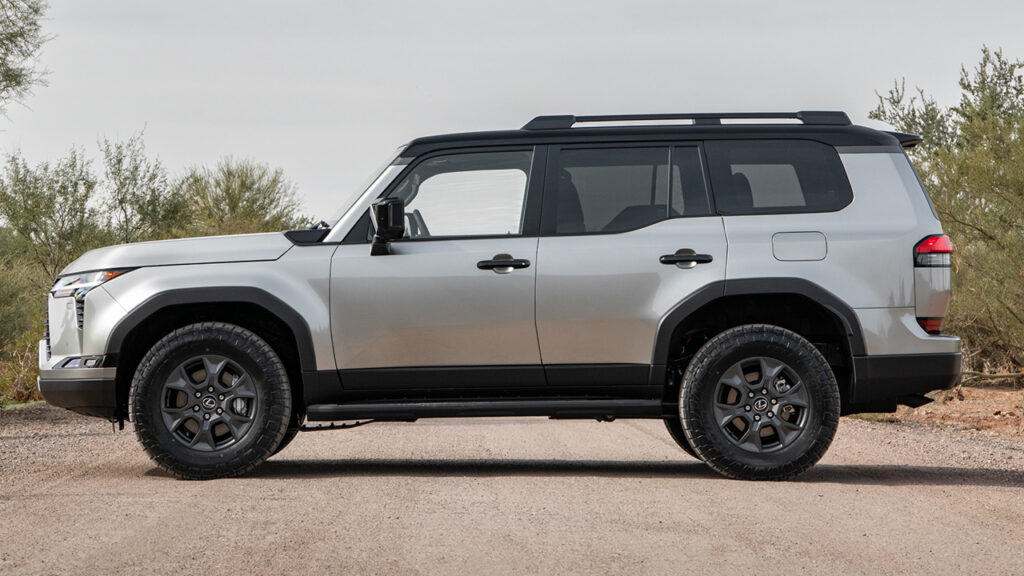
Although they used to be very different vehicles, Toyota decided to have them share a new midsize truck platform for 2024 and didn’t go too far out of the way to hide that fact.
In profile, they look identical, with the same doors and kick in their window line, but they have distinctive faces. In fact, the Land Cruiser has two.
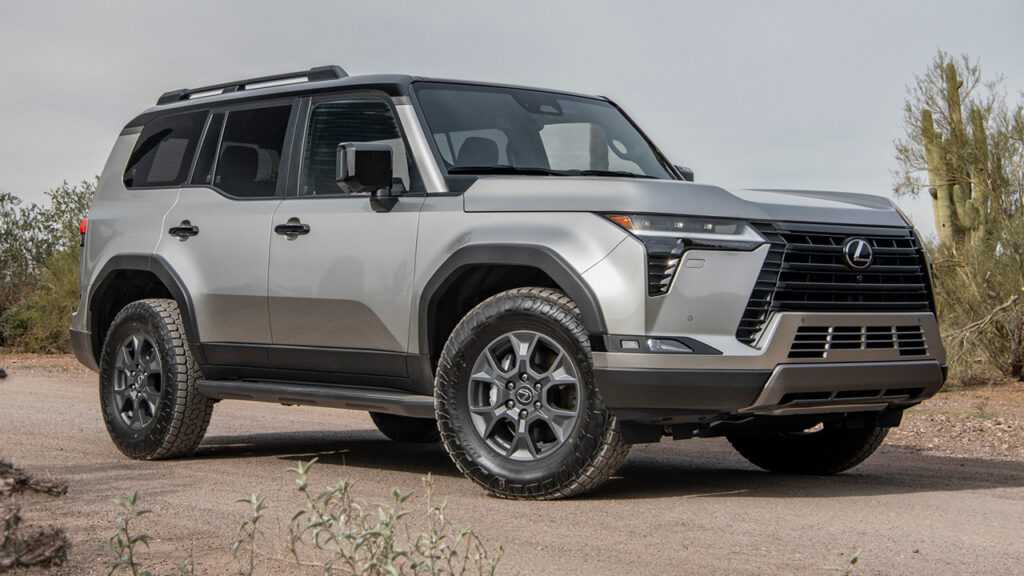
Toyota offers it in a $57,400 retro 1958 trim with a slim rectangular grille and round headlights that tip their hats to the original Land Cruiser, and in a standard model with more modern rectangular lights. The top-of-the-line First Edition I tested combines the round lights with nearly all the available options for $76,400. First Edition production is limited to 5,000 trucks.
The $64,250 GX features a unique take on the brand’s signature spindle grille and headlights that look like weapons a Klingon might use. Behind them is where the two trucks diverge.
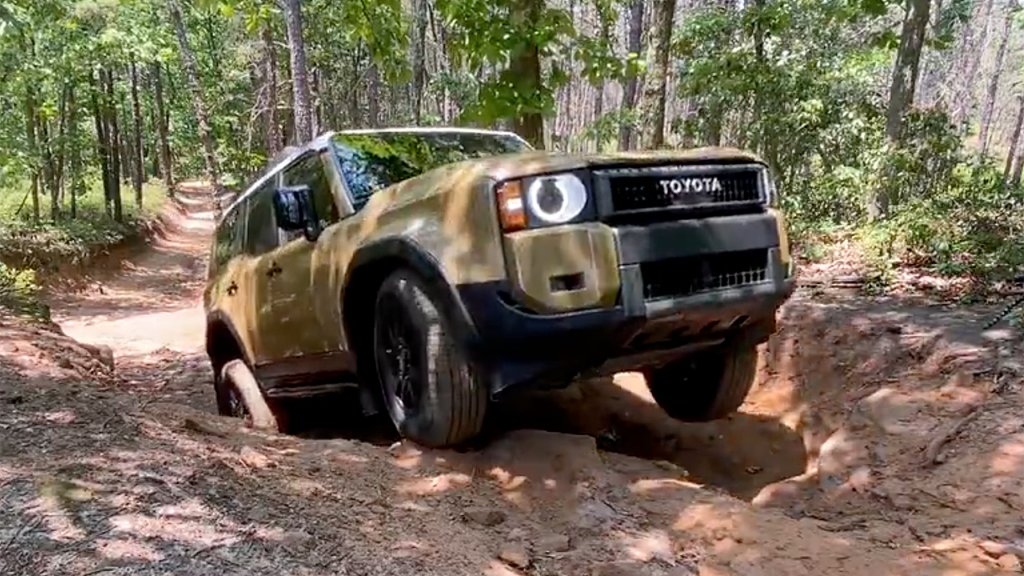
The Land Cruiser has a hybrid powertrain that combines a 2.4-liter four-cylinder engine with an electric motor and an eight-speed automatic transmission. It sends 326 horsepower and 465 lb.-ft. of torque through full-time four-wheel-drive system. The GX opts for a turbocharged 3.4-liter V6 rated at 349 horsepower and 479 lb-ft, but has a 10-speed automatic. Both use solid rear axles like the Toyota pickups that are also built on this platform.
The Land Cruiser only has two rows of seats because the hybrid system’s 1.87 kWh battery pack is mounted to the floor of the cargo area, which remains a sizeable 37.5 cubic-feet. Without the battery to accommodate, the GX comes standard with three rows of seating and 40.2 feet of cargo space. However, my test vehicle was the off-road focused $69,250 GX550 Overtrail, which is a two-row model that has a 45.6 cubic-foot cargo area and makes a good comparison for the rugged Land Cruiser First Edition.
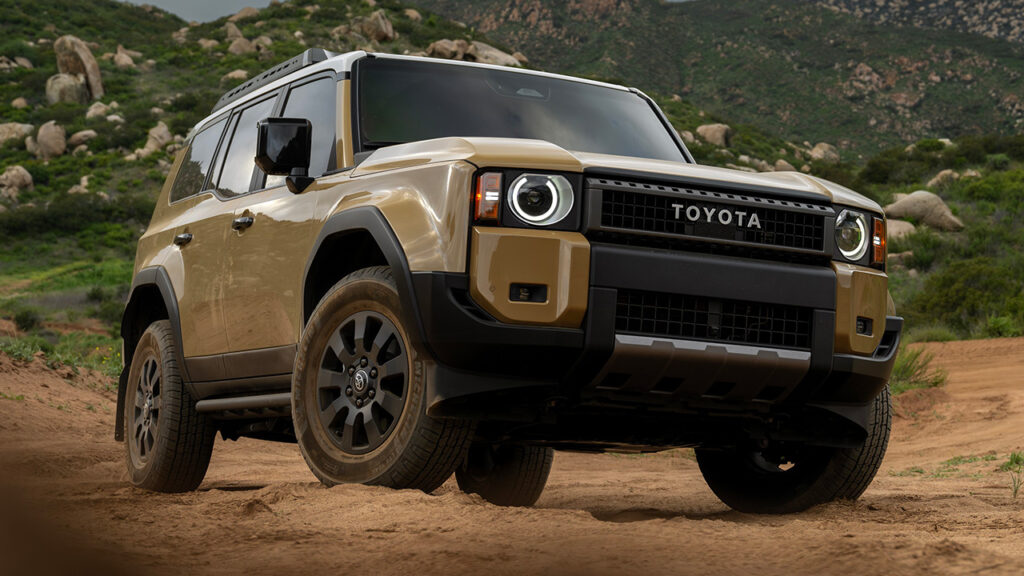
They have individual dashboard designs with widescreen infotainment system touchscreens. GX’s is larger at 14 inches and puts most controls on the screen, while the Land Cruiser makes do with a 12.3-inch display that has more physical buttons underneath it, which I prefer.
I tested the Land Cruiser first and thought it had the most comfortable seats of any truck I’d been in, but then I tried the GX’s, which take it to the next level. Both are heated and ventilated and the First Edition’s are trimmed in leather, but the GX550 Overtrail features NuLuxe synthetic upholstery that’s perhaps even better for getting dirty.
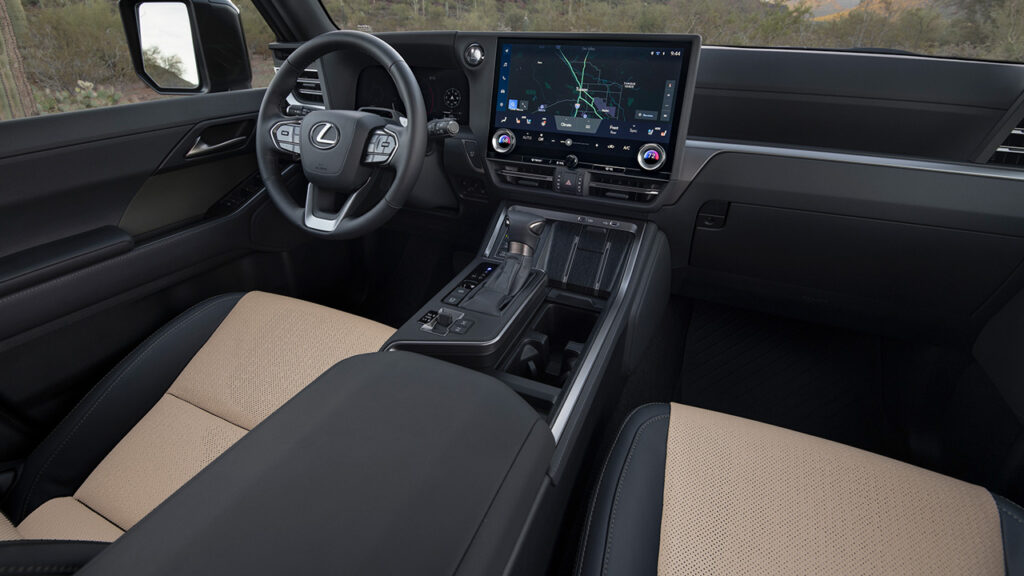
Before I did that I had to get to my favorite trail, which meant a long slog on the highway. The ride quality is very similar, and a bit bouncy, but the GX is equipped with adjustable shock absorbers that can firm things up a bit. It’s extra power allows it to accelerate to 60 mph in less than seven seconds while the Land Cruiser needs more than eight, but you hardly notice the difference in normal driving. The most dramatic advantage the GX holds is that it can tow 9,096 pounds, while the Land Cruiser’s limit is 6.000 pounds. The Toyota does crush it on fuel economy with a 23 mpg combined rating to the GX’s 17 mpg.
Both are dead silent on the highway and packed with electronic driver aids including an amazingly effective lane-centering adaptive cruise control. The GX also had an optional $840 Traffic Jam Assist that allows for hands-off driving when you’re stuck in traffic moving at 25 mph or less. A face monitoring camera makes sure you keep your eyes on the road in this mode and can also be left on to remind you to do that when you’re in control at higher speeds.
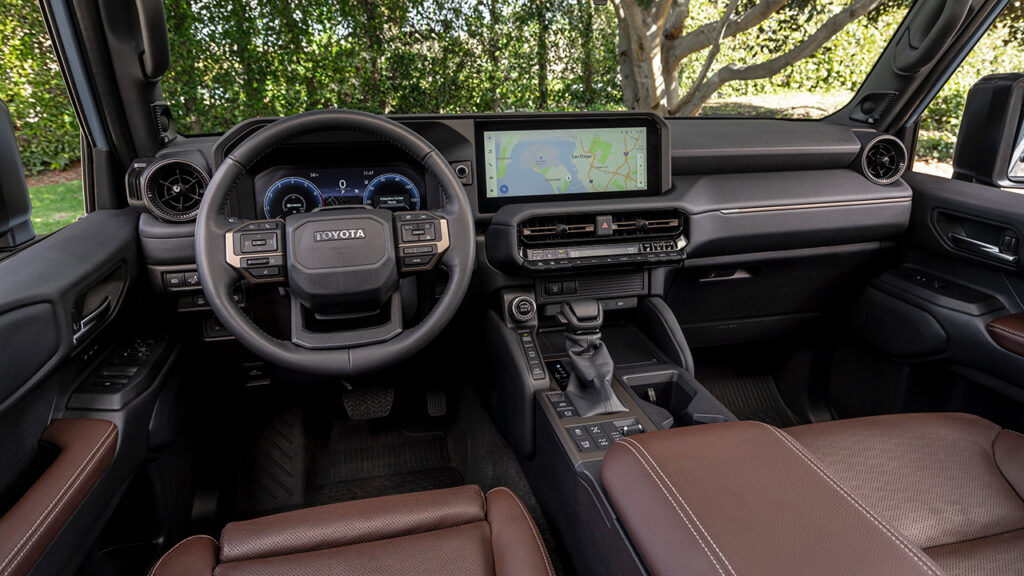
The Land Cruiser First Edition and GX550 Overtrail ride on chunky all-terrain tires and have fascias designed to improve their clearances for rough terrain. The GX also gets a steel skidplate up front and a composite shield for its underbody, while the Land Cruiser is outfitted with even more substantial metal protection underneath. They may be destined for mall crawling, but they really were designed to crawl over rocks, which is what I did with them.
On boulder-strewn washes that would destroy most “soft-roader” crossover SUVs, they acquitted themselves as well as the pickups I usually bring there and in a similar fashion. Their minimum ground clearances are a little low at 8.7 inches for the Land Cruiser and 8.9 inches for the GX, but their relatively short wheelbases help make up for it as they step from rock to rock.
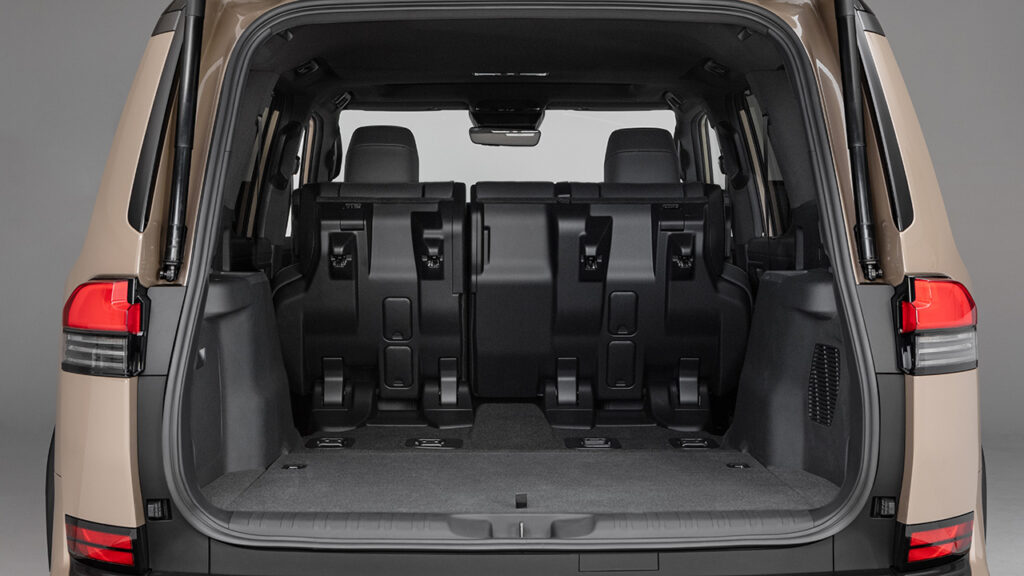
Despite their different drivetrains, they can both be locked into four-wheel-drive, have transfer cases with high and low ranges, plust locking rear differentials for added traction. The Land Cruiser has an electronically detachable front stabilizer bar that can be activated by a button to increase the articulation of its front wheels, but the GX has something better. It’s called the Electronic Kinetic Dynamic Suspension System, or E-KDSS, and it features stabilizer bars at the front and the rear that automatically detach and attach as required. The old Land Cruiser also had this, but it’s a Lexus exclusive this time around.
Speaking of around, both these particular trucks have 360-degree monitors that help with parking and off-roading and can also create a virtual view of what’s under the vehicles.
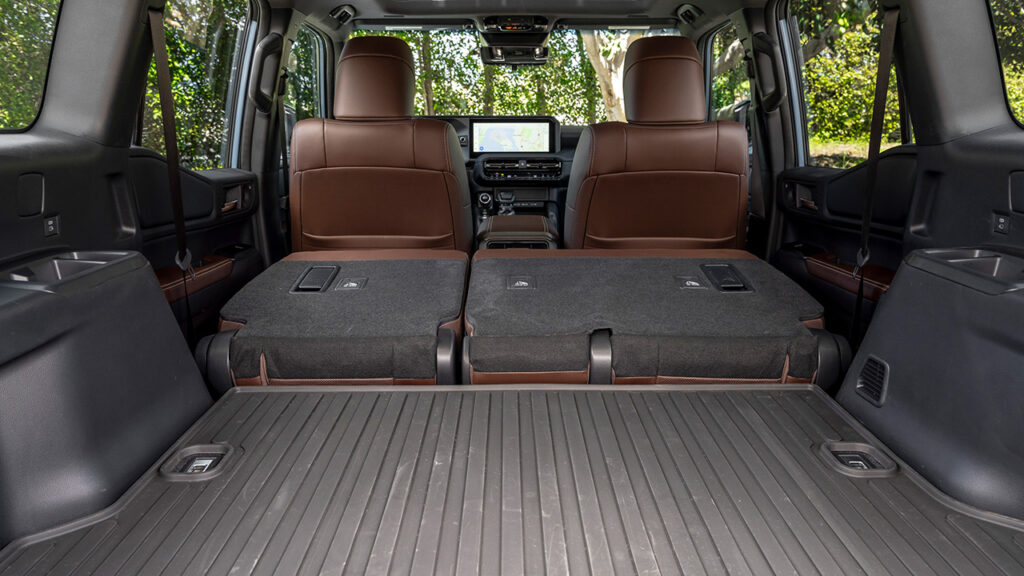
As for which one I’d like under me, I’d go with the Lexus. I prefer the styling, the extra touch of luxury and it can handle any road I’d likely throw at it. If you’re into harder stuff, the Land Cruiser is for you, but you’ll probably want one of the cheaper ones so you won’t feel so bad about getting it dirty.

